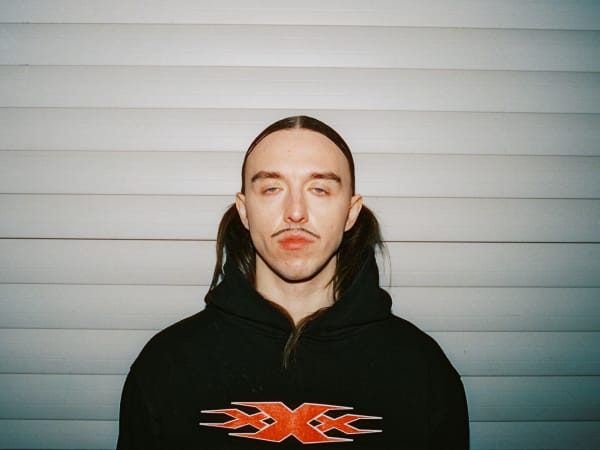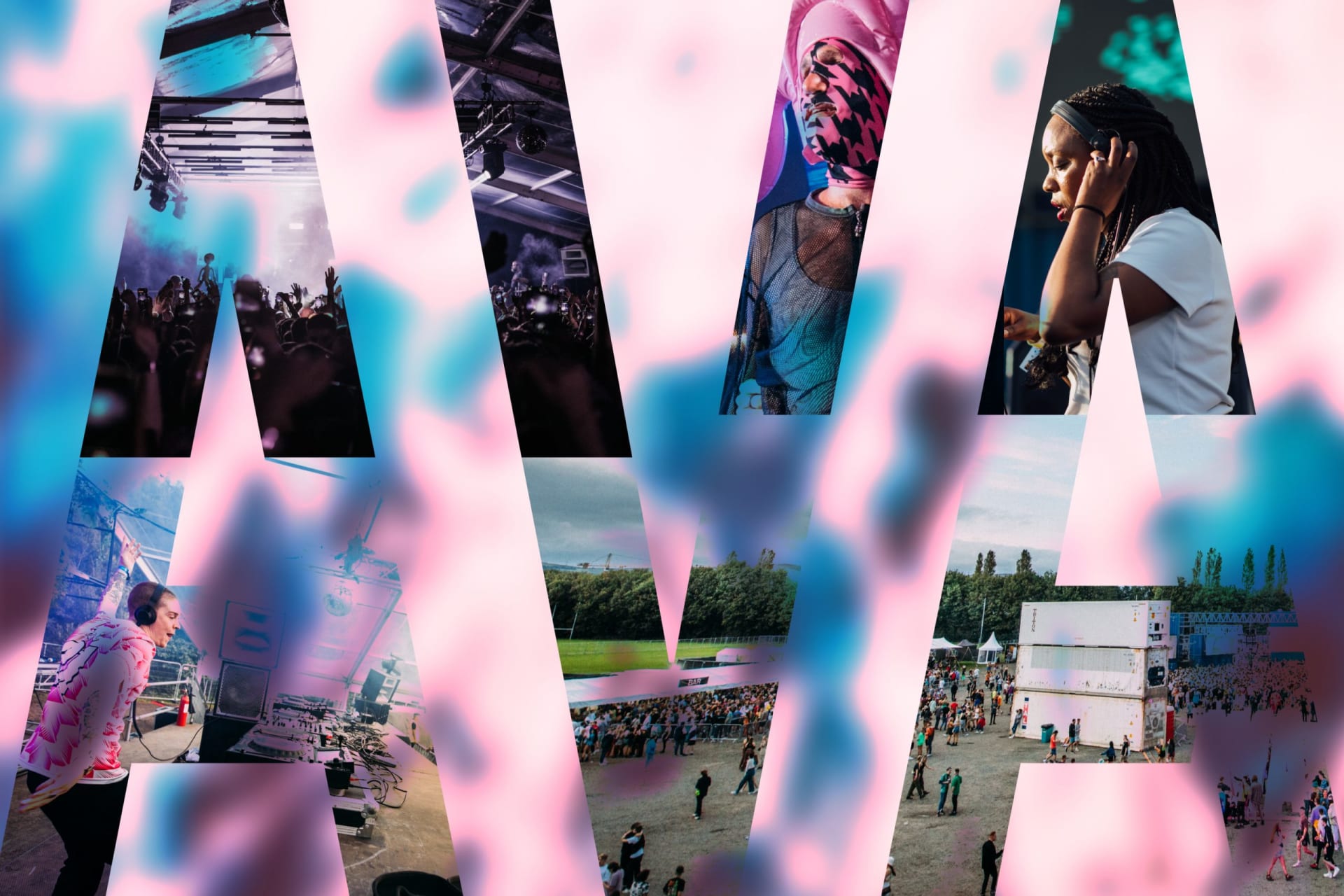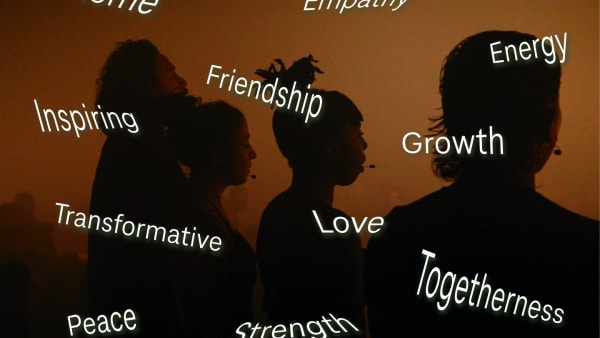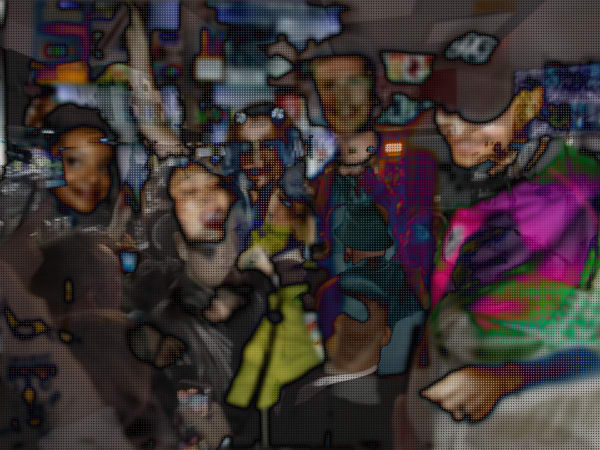

AVA proves Northern Ireland’s scene is thriving, despite political failings
Belfast's beloved dance music festival highlights the strength of the local scene

It’s Saturday afternoon and skies overhead are typical colours for this time of year in Belfast: cotton wool white, slate grey, patches of blue betraying the warmth of a late-September sun that occasionally escapes from behind its cloud cover.
Local heroes Timmy Stewart and JMX have just opened their Boiler Room set with the warm chug of New Order’s ‘Plastic’ and the acid stomp of ‘Hand Relief’ by Neville Watson, playing to a mixture of older heads, fresh-faced kids with wild hair cuts, industry types, fashionistas, and just about anyone else you can imagine. Everyone is here for the same reason.
Northern Ireland’s biggest electronic music gathering, AVA Festival has long-since garnered a reputation as a place where Irish talent shines and revellers throw themselves into the dance with a zeal bordering on feral madness. On the first day alone, it was clear this is no hype, scenes of joyful carnage still fresh in our minds, sonic highlights including broken and commanding drums from Jordan Nocturne, and rave-fuelled techno from Saoirse. Returning to pick up the pieces this afternoon, it’s obvious that was merely the warm-up.
As the next few hours unfold, there are plenty more sets that prove beyond doubt the domestic players aren’t just dominating 2021’s lineup (partly due to ongoing pandemic travel restrictions), they’re also delivering the most memorable sounds of the weekend. Not least, techno heavyweight Sunil Sharpe, who unleashes ‘The Horn Track’ on a rabid crowd at the greenhouse-style Nomadic stage, and Hammer closing out the Surround rig with the euphoria of Belfast-born duo Bicep’s ‘Glue’. A backdrop of shipping containers nods to the festival’s old location, at the city docks, while the performance feels like it could be powered solely by electricity emanating from the dancefloor.
“It’s about that energy. Ask any international DJ who has played here, and they will tell you; it’s electric. It doesn’t even matter what genre it is,” says Brett Kydd, a DJ and one of the heads behind Spiral Studios, a tiny 70-capacity loft venue 20miles (ca. 32 km) away in Antrim. His partner Caoimhe was a previous winner of AVA’s mix competition, and returned this year to once again open the main stage. “Timmy and Jordan [Nocturne] did a seated gig a couple of months ago, and the energy from that was electric. Some of that comes because it’s a Belfast bunch of people,” she tells us.





The infectious atmosphere could be down to a number of different things, but many people believe the notoriously restrictive licensing laws in Northern Ireland—said to be the strictest in Europe—have plenty to answer for. Traditionally, alcohol sales are not allowed later than 1AM, and although entertainment is permitted until 3AM or 6AM, very few venues bother staying open once their bars shut. This means crowds arrive in peak time spirits from the outset, which is great news for the vibe. Nevertheless, with all nightlife finishing at the same time, streets outside venues fill up quickly once doors close, taxis that sat dormant for hours become overwhelmed, and the likelihood of violence and anti-social behaviour increases.
Changing these laws to introduce more staggered closing times has been debated for many years. If you believe policymakers, the recently-passed Licensing and Registration of Clubs (Amendment Bill) represents a major step in the right direction. But at a time when progress has been made in a number of other social struggles — with same-sex marriage legalized and access to abortions significantly improved during 2020 — many see new nightlife regulations as a false dawn.
I looked at who had responded to the consultation prior to the policy being put forward and noticed no artists, DJs, venues, or promoters responded. But the church did, the police did.
“The new legislation was initially just an extra hour of drinking time, so until 2AM. But they actually wanted all entertainment to stop then. So it was going to be a step backwards,” says Boyd Seator, a member of Free The Night, a non-profit lobbying for more relaxed licensing in Northern Ireland. “I piped up about this and said it was a massive issue and needed to be changed. I contacted a lot of venues and promoters and asked if they knew that was the case. They didn’t… I looked at who had responded to the consultation prior to the policy being put forward and noticed no artists, DJs, venues, or promoters responded. But the church did, the police did.”
Despite only launching five months ago, Free The Night has already made an impressive gain, forcing policymakers to allow venues to continue playing music until 3AM on 108 dates per year. The new legislation also requires a full review within the first 12 months, so the group are now preparing evidence-based arguments supporting further easing of laws for whenever that audit takes place. Suffice to say, this relies on thorough, in-depth investigations.
“Last year the Northern Irish Assembly’s research team compiled a series of reports that were supposed to help the Executive make a decision on changes to licensing. In fairness, they did have quite a short amount of time to do this, and openly say that might be reflected in the content. But generally the data wasn’t written in an objective way,” says Ciara Power, another member of Free The Night, who is also studying a PhD focused on dance music communities in Dublin and Belfast. “Basically, they said they couldn’t quantify the benefits of the nighttime economy, so it was all focused on the negatives.
“We need investment from government into local pilot schemes to see what the impact will be. If they did do a pilot scheme for a year to extend licensing until 4AM or maybe 5AM, and the data shows there has been increased nuisance reports, then fair enough. But we need to actually look at it,” she continues, explaining there has never been any trial to assess the effects of late licensing. “In the same way, it was assumed Northern Ireland didn’t have the infrastructure to put test events on for reopening in the pandemic. So no data exists on relaxing social distancing and COVID, and there’s no data on licensing.”
They said they couldn’t quantify the benefits of the nighttime economy
Free The Night believe the refusal to consider test schemes reflects systemic prejudice against nightlife and electronic music. Rather than considering these as forms of culture, politicians often view the club scene as a drink and drug-fuelled problem. With that in mind, the ongoing campaign to improve licensing centres on what the group calls a “hearts and minds approach.” This means increasing public recognition of dance music as an art, and emphasizing liberal opening times as both fundamental to that culture and key to improving nightlife economics. But, even if the electorate agrees, the licences themselves could still act as an obstacle.
“We have a finite number of licences, so if you want to open a licensed premise, you either have to wait until one becomes available, or buy it from another venue,” says Seator, explaining this means some businesses within the nightlife sector would prefer to maintain the status quo. “These licences are seen as assets. A liquor licence in Northern Ireland will cost you between £250,000 and £300,000. So venues are sitting on assets, and if you change the laws to make it easier to get a licence, that value decreases.”
According to Free The Night’s research, 94% of those surveyed said music and entertainment were important or very important contributors to overall wellbeing, but nightlife and dance culture also have a unique historical significance to Northern Irish society. Backstage at AVA. Timmy Stewart is expounding on this subject, telling us the strange story of how Belfast hairdressers employed many of the city’s early house and techno DJs as apprentices. They trained them in the art of trimming while allowing them to sell vinyl from the salon and investing in their parties, making it easier and more affordable to bring the likes of Andrew Weatherall, Dave Clarke, and The Advent into the city as headline acts.
We also discuss the role night culture plays in developing local economics, and a slow but definite spread of parties out of central Belfast and into suburbs. Like his own Night Institute, run alongside Jordan Nocturne, which uses Ballhackmore Working Mens Club as a venue. Situated in the eastern districts, the area is now becoming recognized as a creative hotbed, and is celebrated in the recent documentary, ‘East’. Most memorable of all, though, are Stewart’s comments about the impact of nightlife on religious divides between Catholics and Protestants, pitting those in favour of a united independent Ireland against those backing British rule.
“My parents weren’t biased, so I was never exposed to hatred towards anyone, but I was still segregated in a way. I was in East Belfast, which was a Protestant area. And if you lived there and weren’t [Protestant], there were problems. “You were cut off from all these people, but everyone was just wanting the same thing. We wanted music, something that wasn’t mainstream. A scene we could belong to. That was really powerful,” Stewart says of formative days raving in the Northern Irish capital.
You were cut off from all these people, but everyone was just wanting the same thing. We wanted music, something that wasn’t mainstream. A scene we could belong to.
“I remember never having any Catholic friends, nobody in my school was Catholic. Then I went to the Art College and met everyone, and they were all into the same things as me, looking for the same things. It was pivotal. But from speaking to people like David Holmes, you realize things like that were going on in the days of the Mods — nightlife brings people together, it’s a shared experience. We ended up at parties in bits of Belfast I’ve not been in since, making life-long friends. Nobody can take away from the importance of that,” he continues. “Those parties, the ones that happened in the Art College in particular. I suppose it was a space that was neither left nor right, it was an art college campus, a great venue called Connor Hall, that was where you had David Holmes and Ian McRaedie doing Sugar Sweet, things like that.”
The fact tangible social and economic benefits of nightlife aren’t acknowledged by policymakers supports the theory that the current administration is out of touch, favouring cautious conservatism over licensing policies that would be considered innocuous in many parts of the UK and Europe.
But the fact such a buoyant, passionate and long-lasting electronic music scene has thrived in spite of this lack of recognition is testament to just how deep the roots of rave and club culture go in this particular corner of the world. Recent changes in law may only pay lip service to the obvious need for a rethink, but with the club community now mobilized, organized, and determined to be heard, you can’t help but feel real change isn’t too far away. And the significance of that to Northern Irish dance music culture is impossible to play down.
Published October 19, 2021. Words by Martin Guttridge Hewitt, photos by Lewis McClay, Marty Logan & The Hype Factory.






Follow @electronicbeats